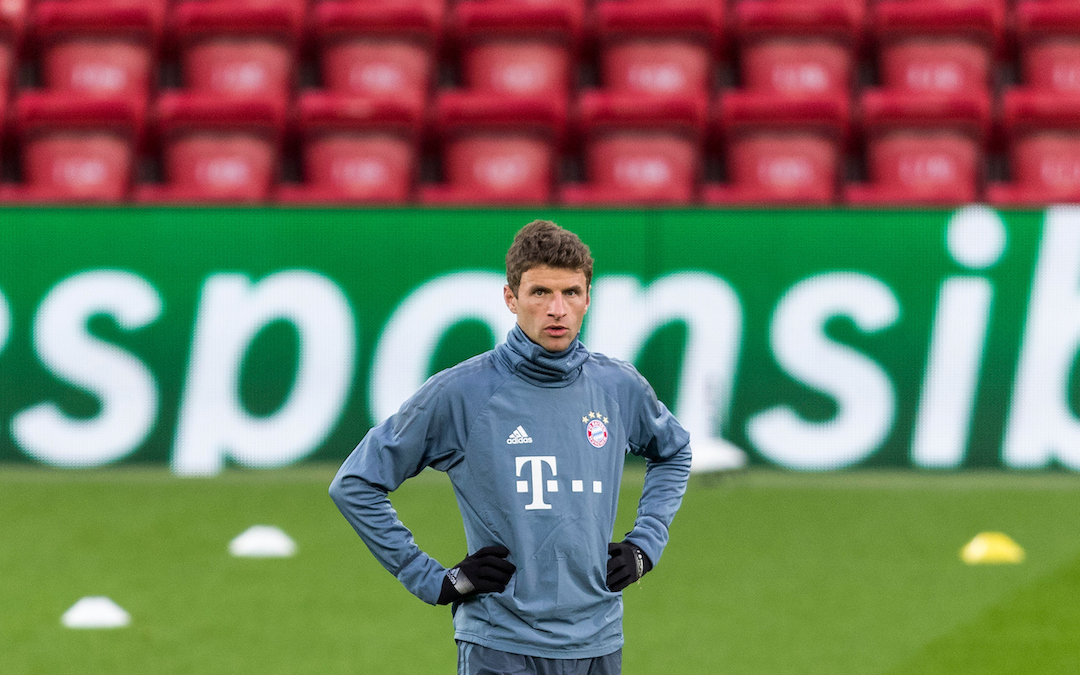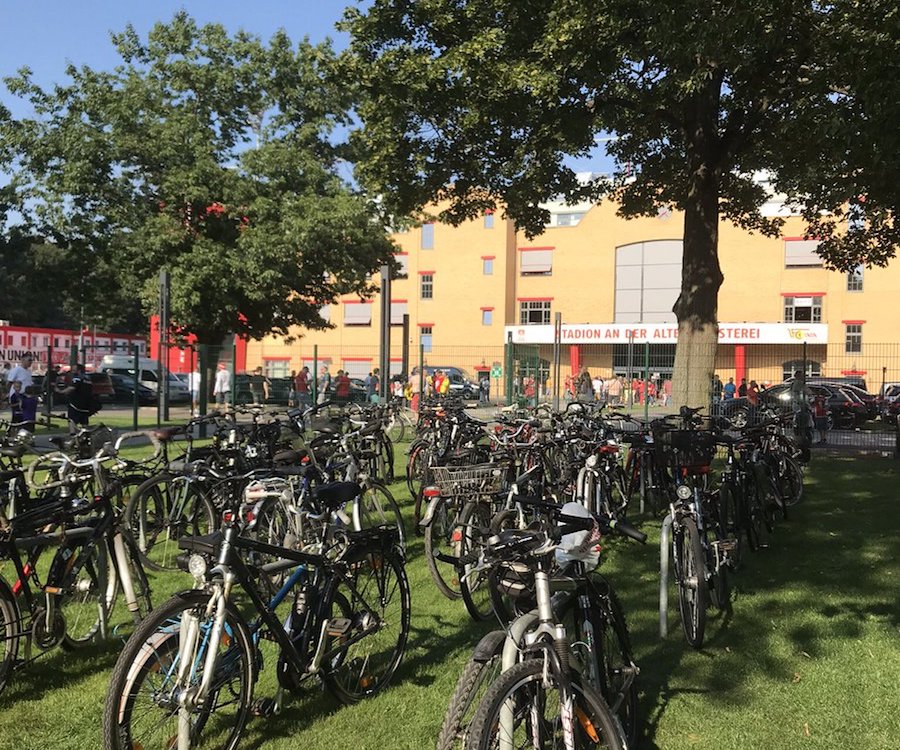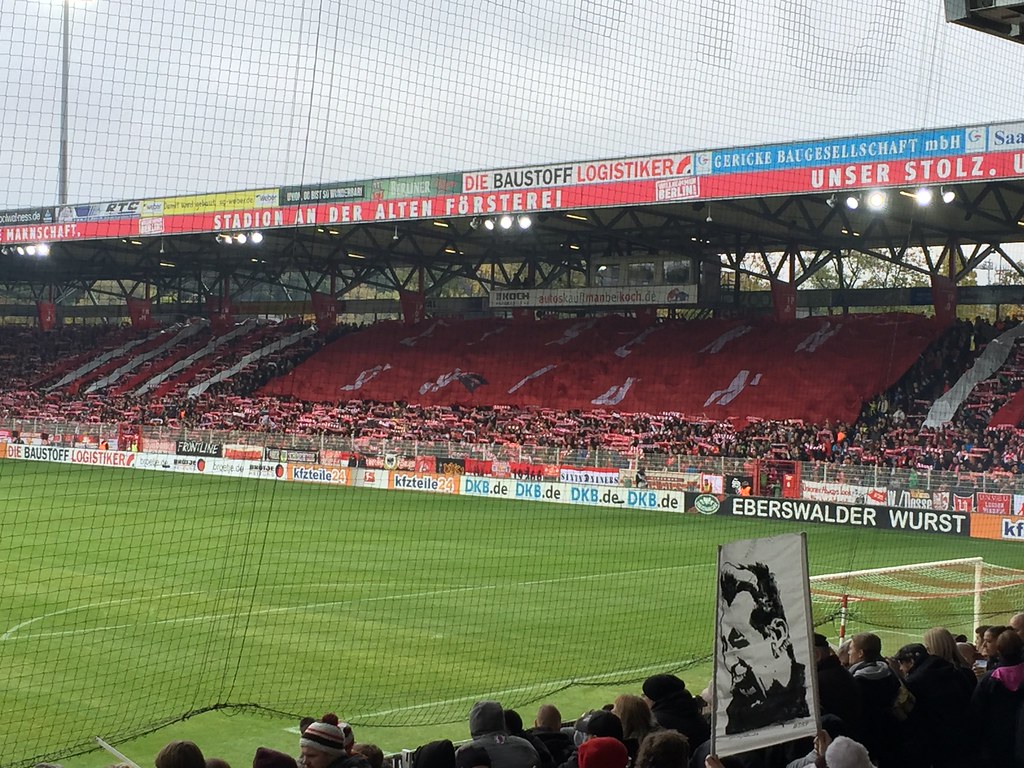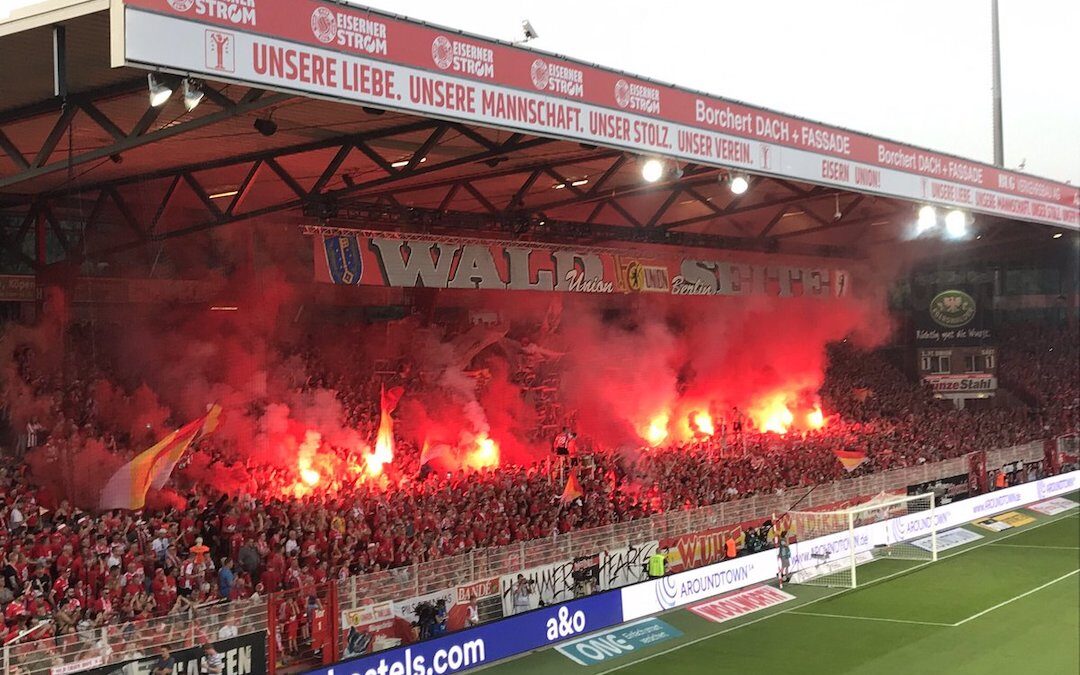FOR all that the actual football grabs us, there’s always something more.
Something surrounding, something special: a story that we grab on to and hold dear.
Last weekend, Bundesliga resumed and the sniff of something new in a world stuck on repeat provided a welcome distraction from the grim realities all around.
A multitude of justifications have cropped up for temporarily adopting a German side, from historic links to Liverpool in the case of Borussia Monchengladbach, to the Jürgen Klopp connections at Borussia Dortmund and Mainz.
Personally, it’s Union Berlin that’s been the pull. A TAW listener very kindly saw some synergy (more bluntly, “get on these, right up your street, Robbo”), and then some.
There’s a captivating background, there’s a mystique, there’s a massive tick in the to-do list post Corona. I’ve disappeared down an internet wormhole reemerging not only with a newly found interest, but also a huge desire to discover the city of Berlin properly and this club within its streets.
From the East, underdogs, fans at the centre of everything – they *literally* (correct usage, not Jamie Redknapp usage) built the ground – 140,000 hours of unpaid labour, mixing the concrete, that kind of thing. Oh, and the ground is in the middle of a forest and 75 per cent standing.
Last weekend, they played everything they are not on home soil – the German football behemoth Bayern Munich.

The buildup should have been all about the scene setting we know all too well – the big guy against the little guy, David v Goliath, the most successful football club in Germany travelling to a club experiencing a top-flight season for the first time.
Instead, like Dortmund’s game on Saturday, it was another episode of a football remake of The Truman Show – it looked real enough, the cameras were there, it was football – yet it wasn’t football.
As with the wider debate about the game, it left me torn in different directions: the wide-eyed footie romantic desperate to witness an upset from afar via BT Sport, versus the match-going supporter gutted for the real Union fans, many of whom (literally) gave blood in exchange for cash that they then donated to the club to help them stave off bankruptcy.
Bayern at home was huge for Union. A mere pipe dream once upon a time, no doubt.
When you consider that two of their outstanding results this season have arrived at the Stadion An der Alten Försterei – a 3-1 win over Borussia Dortmund in August and a single-goal victory in the Berlin derby with Hertha in November – that their fans were not there to witness, and influence, this game after all their hard work was a real shame.
Union’s initial approach in this match was a bolshy one – tough tackles, ultra competitive; what you love to see from an underdog.
Ultimately, that spirit waned and it faded. A soft penalty conceded in the first half converted by Robert Lewandowski, a header from Benjamin Pavard 10 minutes from the end. The points were Bayern’s and the referee’s whistle echoed around an empty stadium. Game done. Box ticked. Romance none.
Could Union’s players have maintained their initial gusto for the task at hand with the fervent support of their fans cheering them on? Might a decision or two have gone their way? Would the adrenaline have pumped that bit harder on home turf?

We’ll never know for sure. But history, science and experience all suggests it’s not the most far fetched of theories.
Will the coulda, woulda, shoulda ever go away around these ghost games? Will the abnormal ever become more normal? And will the shame of football without fans ever not be felt?
When – and it looks almost certainly to be a case of when – Premier League football returns and Liverpool play once more, only without fans and behind closed doors, we’ll know more.
Yes, it’s 11 skilled athletes versus 11 skilled athletes on a rectangle of grass. Yes, if you appreciate and love football there is something to take from it all. And when it’s us, our team, there will be added emotion to steer us away from the sterility.
But, but, but. I can’t be the only one constantly conflicted over it all. Spain manager Luis Enrique said this week: “Playing without fans is sadder than dancing with your sister”. It undoubtedly feels a bit wrong however it is sold and packaged.
I also can’t be the only one who has found much of the debate around the ‘what next’ for football to be just as grim. Rabid self interest has raged in the near-public discussions, initially veiled but now on show for all to see – and no longer covered up by the daily exhilaration of the game itself, and everything that surrounds it.
Initially it was Karren Brady who walked into the sunlight first before skulking back into the shadows. Now it’s not just West Ham. It’s Watford, Brighton, Aston Villa and more. It’s everywhere. At every turn. And while some of the voiced concerns are perfectly valid and understandable, others are opportunistic and self serving.
It’s made me wonder. What is the story here about football? Is it the one we thought it was? Did we only skim read it? And does it now need to be rewritten? Is this an opportunity to create something better from here on in?

It started out as an illusion of collective will – an effort to find the best way for football to survive a threat like no other; a threat that has led to 35,000 deaths – a number that could fill many a football stadium to put things into a sobering context.
Very quickly, collective will was kicked into the long grass.
“At this stage of the season there is self interest at every level of the table,” Paul Barber, the chief executive of Brighton said. “There is as much self interest at the top as there is at the bottom, there is as much self interest in the middle as there is at the bottom.”
It hardly stirs the soul, does it?
Humour an old romantic for a second here, but for me football should be putting its arms around itself and making sure as much of what we know and love emerges on the other side of Coronavirus as possible. That includes clubs from the biggest to the smallest. From the top to the bottom.
To glance back at the German picture, we can get misty eyed about the 50+1 rule which gives members (fans) a perpetual veto on magpie owners with values different from those of supporters. The rule is a great idea, and something that should be looked at over here, along with legislation to give the current ‘fit and proper person’ tests some real teeth.
But money has reared its ugly head there just as it has here and supporters have highlighted its malignant influence on many occasions.
However, where there seems to be a difference right now – at least when it comes to glancing over from this bit of land to that bit of land – is the spirit of the collective among the clubs.

Plenty of German supporter groups have opposed the league’s decision to host “ghost games” but when the hole left by reneging on TV and sponsorship deals is presented – alongside the fact that clubs could go the wall as a consequence – the idea became more palatable, plans were made, plans were approved and balls were kicked once again.
Are we there yet over here? It doesn’t look like, does it? Anonymous briefings to newspapers continue. An air of mistrust snakes around it all, with concerns even appearing in the media (anonymously, of course) that clubs could fake a Coronavirus crisis to seek an advantage.
Meanwhile, leadership and communication still seems to leave a lot to be desired. Where the Government leads, football follows, it seems.
Anyway, on we go.
Next for Union Berlin it’s a short trip to Hertha Berlin for a capital city derby. It’s tonight. Friday night. Under the lights. Sounds good, in theory. Imagine the scenes. The vibe. That palpable feeling that hangs in the air that you can almost reach out and touch.
But with no fans. Without all that. No colour. No sounds. Ah. It’s a shame.
Click here to give the Bundesliga Diaries podcast a listen and subscribe for more TAW Bundesliga coverage…
"You must be able to take some pleasure from seeing a skill, an art, a game that you have followed all of your life being performed to that level."
— The Anfield Wrap (@TheAnfieldWrap) May 21, 2020
"In order to get the football you like back, we have to have this football."
Subscribe to listen in full 👉https://t.co/oaOWcUzrlr pic.twitter.com/bjxm22JWUs












Robbo
I’ve been to Berlin several times and me and a mate happened to be in Berlin last July for a Pearl Jam gig. Union Berlin were playing Brondby in their 1st pre-season game in preparation for their 1st ever Bundesliga campaign.
€8 it was. Atmosphere was boss and stadium was full.